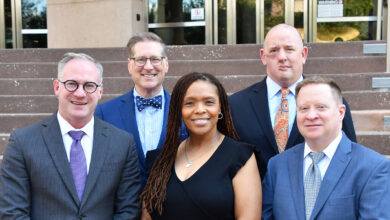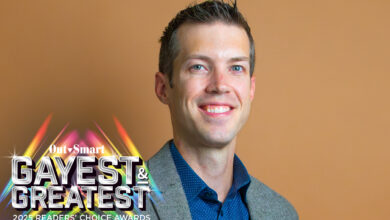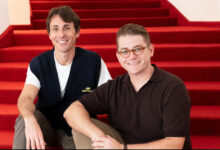
The Houston HIV and Aging Coalition Hosts Symposium This September
By Terrance Turner
If you’re 50 or older, HIV positive, and want information on how to manage your health, next month’s symposium is for you. The Houston HIV and Aging Coalition is holding an all-day informational event at the Montrose Center on September 16.
According to its website, the Coalition is a loose gathering of agency representatives and those who are affected by the virus. It was established in August 2013 to address two major objectives for those over 50 who are living with HIV. First, the organization seeks to educate the community and service agencies about relevant issues and the available, necessary services that should be provided. The second, trickier goal is to break down the social isolation that patients over 50 are facing. This symposium is intended to address both of these objectives.
The event begins at 9 a.m. with Ann Robbins, Senior Public Health Advisor at the Texas Department of State Human Services, speaking on the state of HIV care for the aging in Texas. At 10:30 a.m., Dr. Scott LeTendre will give the keynote address on HIV-Associated Neurocognitive Disorder, or H.A.N.D. This disorder occurs when HIV enters the nervous system and affects nerve cells. The National Institute of Mental Health website says that the disorder can impair attention, memory, language, and decision-making. Symptoms include confusion, forgetfulness, headaches, and gradual loss of feeling in the arms and legs.
The rest of the program will feature a University of Houston professor of pharmacology, an endocrinologist, and two psychologists. Their presentations will address the problems of grief among HIV survivors and the effects of internalizing the stigma surrounding HIV. The symposium will conclude with a 3:45 p.m. summary by Dr. Shatel Patel. There will be a respite room with masseurs, snacks, and drinks. “Lunch will be served,” the Coalition’s website says.
The event, which is open to the public, will be held in conjunction with the AIDS Education and Training Center, a national network of leading HIV experts who provide local tailored education, clinical consultation, and technical assistance to healthcare professionals and organizations. The center was founded in 1987 by the Department of Health and Human Services as the training arm of the Ryan White HIV/AIDS Program. According to its website, the program is a lifeline for those struggling to pay the costs of their medical care: “The Ryan White Program provides HIV-related services to more than half a million people each year who do not have sufficient healthcare coverage or financial resources to cope with HIV disease.”
Bruce Turner, who serves as the Coalition’s organizer, says he got the idea for this event after attending an Austin symposium for the Central Texas HIV Coalition in 2014. He was inspired to create the Houston group after going to an event for ACRIA, a New York City-based HIV research and education organization.
Turner hopes the Coalition’s event will provide information for both patients and healthcare professionals. “I want them to realize that the problems and issues of aging with HIV—that are not normally addressed—are being studied and talked about in the profession, and that [we] have places to go for those answers.”
What are the biggest challenges with HIV and aging? The foremost issue, Turner says, is one that the Houston HIV and Aging Coalition cannot address. “The number-one issue, actually, for all people with HIV, is housing,” he says. The Montrose Center, which sponsors the Coalition and is the site of its monthly meetings, is working to solve this problem. Through the federal Housing Opportunities for Persons with AIDS program, or HOPWA, the Center assists qualified HIV patients with mortgage, utilities, and rental assistance. The second issue, Turner says, is finding doctors who can treat complicating conditions like heart disease and cancer in HIV-positive patients.
“Number three, I would say, is social isolation caused by stigma,” Turner says. He stresses that the combination of shame and prejudice experienced by those with HIV is still a major concern. “People that have been HIV-positive for a number of years have never been able to get away from it,” he says, “and those who are newly diagnosed don’t experience it the same way.” But patients 50 and older are particularly vulnerable: “Of the overall HIV population, [about] 50 percent is gay. In the over-50 population, it’s closer to 70 percent. So we [face both] the ageism that is inherent in the gay world and the stigma of HIV.” The best weapon against that stigma, Turner believes, is education, and that’s exactly what he says the event will provide to those who attend. “They’ll have valuable information when they leave.”
What: Houston HIV and Aging Coalition Symposium
When: September 16, 9 a.m. (registration begins at 8 a.m.)
Where: The Montrose Center, 401 Branard St.
Details: Registration: $25; agingcoalition.org











